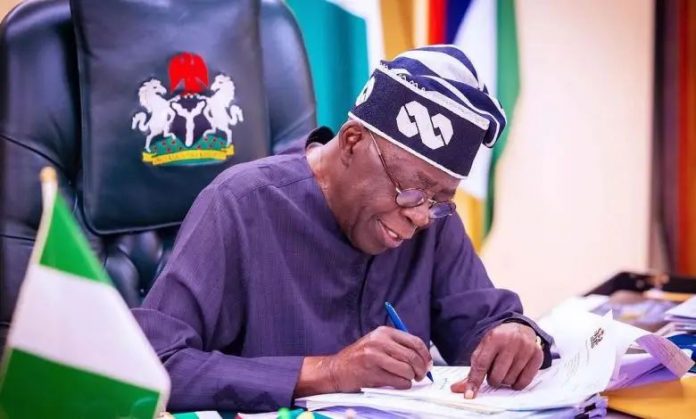By Kehinde Bamigbetan
The offensive article, “Tinubu’s Minister, submits the N200 billion budget for the project already existing”, written by a blogger called Echezonam Ibezim was primed to titilate your appetite for sensational hogwash, fast becoming the pastime of gatecrashers into journalism.
In the author’s desperation to report negatively, he betrayed gargantuan ignorance of the gaps in the country’s geo-data environment.
The Solid Minerals sector relies on scientific data on the nature and occurrence of rocks underground to determine reserves of commercial quantity that investors can use to make decisions on business ventures.
The National Geodata Centre lauded by KPMG is the repository of geological data. We have improved on it with the launch of the advanced Nigerian Minerals Resource Decision Support System, which the Minister launched on May 14. It aggregates geological, hydrological, demographic, and economic data to facilitate investment decision making.
A Geodata Centre is a repository. It is like a bucket or store of information. Its relevance to investors is the quality of its data.
It is obvious that the writer is unable to distinguish between the bucket and what it must contain ! To clarify, a bucket you wish to use to bath must have water. The bucket to paint must have emulsion.
The data centre we have established must have accurate and comprehensive data to cater to investors seeking to mine over 44 minerals. If it doesn’t, investors won’t take Nigeria seriously. If the government is able to make the data available at the data centre, it will de-risk investment and enable them to venture into actual extraction and processing.
However, the data in the facility is grossly inadequate, hence the need for ambitious and aggressive data gathering to fill the gap. This challenge was identified by the previous administration. It led to the implementation of the National Integrated Mineral Exploration Project. Due to funding constraints, NIMEP explored only five out of Nigeria’s 44 minerals and was restricted to specific regions of estimated occurrences.
These were Gold with Nickel and PGM; Pegmatite minerals ( Tantalum, Niobium, Tin and Lithium); Lead, Zinc and Silver; Baryte and Iron ore.
Compare this with Sierra Leone which, between 2018 and 2022 spent $7.8 million to execute a nationwide Airborne Geophysiscal Survey of its 71,740 square kilometres enabling her to develop data sets on the occurrences and reserves of all key minerals.
With Nigeria’s land space of 923,768 square kilometres, more than 12 times the size of Sierra Leone, the cost of a similar Airborne Survey will exceed the N200 billion budget proposed – which is not even available !
Furthermore, Nigeria’s low investment in solid minerals exploration is an international embarrassment, and this administration is determined to reverse the stigma. According to Standard & Poor ‘s survey on exploration budgets of countries in Africa, Nigeria spent the least, only $2.5 million dollars on exploration in 2023 compared to Ivory Coast’s $ 147 million. The figures for a few other countries are DR Congo, $ 133 million, South Africa, $ 117 million, Ghana, 99.7 million, and Mali. $ 83 million are instructive.
The Minister’s budget proposal, tagged NIMEP 2, was conceived by the Ngerian Geological Survey Agency, to explore identified mineralised corridors, gather more data on government-owned licences, explore targeting methods for specific minerals and develop local exploration expertise.
There must be something wrong with a writer flinging ill-digested and ill-informed trash into the public space to raise false alarms. It comes from the permanent political campaign mindset that keeps the election loser on the field after the match has ended.
Now that you know the truth, be free from the bile and prejudices which goaded your ill-informed insinuations and have the courtesy to apologise.
Bamigbetan is Special Adviser to the Honourable Minister of Solid Minerals Development.

